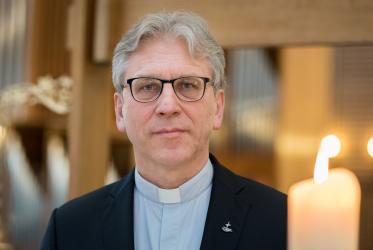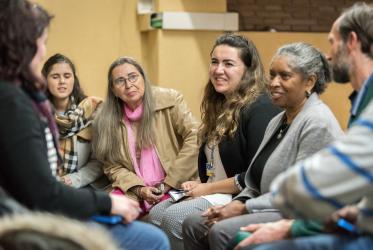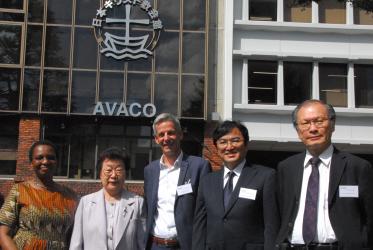Displaying 61 - 80 of 280
Healing Together
A Facilitator’s Resource for Ecumenical Faith and Community-Based Counselling
15 October 2020
A visionary missionary heads home
25 March 2020
South Sudan Church leaders welcome new cabinet
15 March 2020
In Korea, young ‘stewards of hope’ forge ahead together
19 September 2019
In Japan, theologians reflect on today’s global manifestations of racism
18 September 2019
Dr Saïd Ailabouni: God is on the side of rejected, oppressed, occupied
12 September 2019
A passionate Korean feminist and ecumenist
21 August 2019
Religions for Peace assembly convenes in Lindau
19 August 2019













